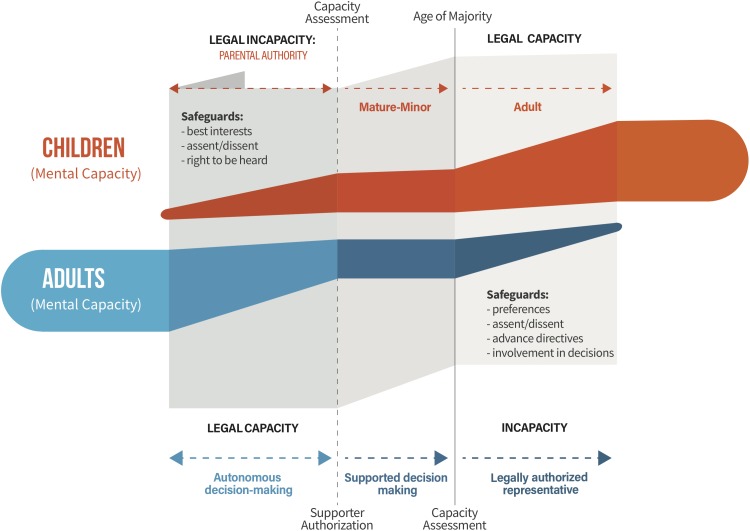FIGURE 1.
The opposing decision-making capacity trajectories of children and decisionally vulnerable adults in research: ethical and legal considerations. The mental capacity of children normally develops with age. Parents generally have legal authority over their children, who acquire legal capacity at the age of majority. Children may acquire legal capacity at an earlier age for certain types of decisions under mature-minor exceptions. Adults may experience a loss of or fluctuating mental capacity over time. Their legal capacity is generally presumed, until a capacity assessment demonstrates they are no longer able to make certain types of decisions. Under supported decision-making regimes, carers help adults to make their own decisions. For adults who lack legal capacity, LARs make decisions on their behalf. LARs typically have obligations to consult the individual, and to respect certain criteria (e.g., best interests, previous and current wishes, values and beliefs). Note that this Figure constitutes high level generalizations across populations and regulatory frameworks. Refer to Box 1 for definitions.

